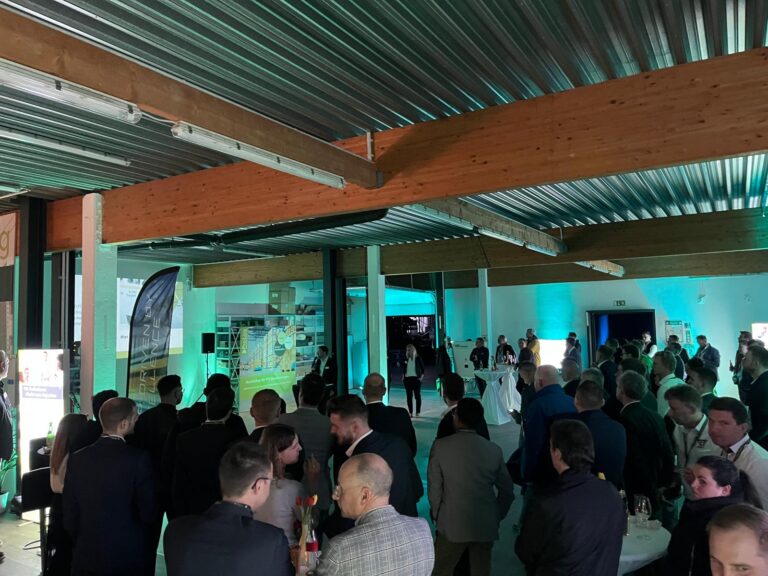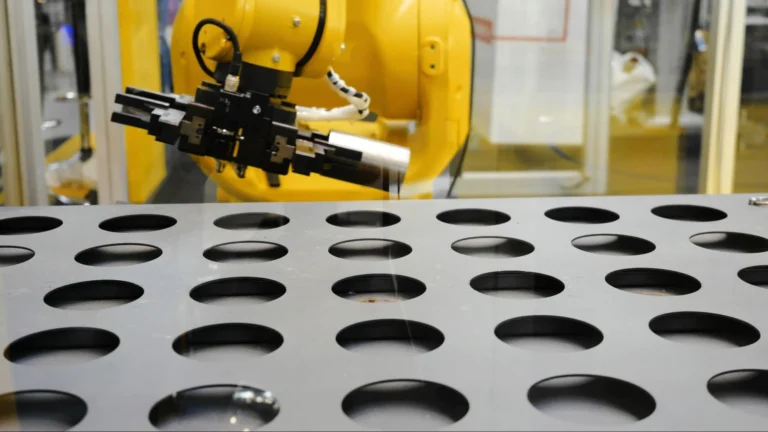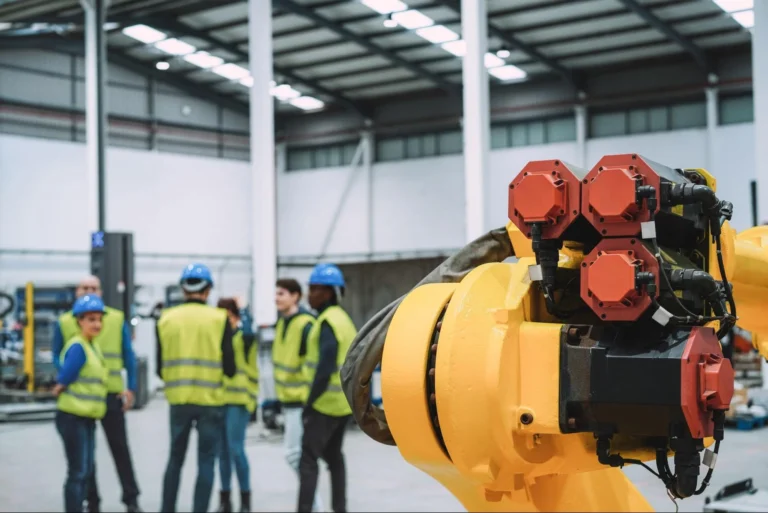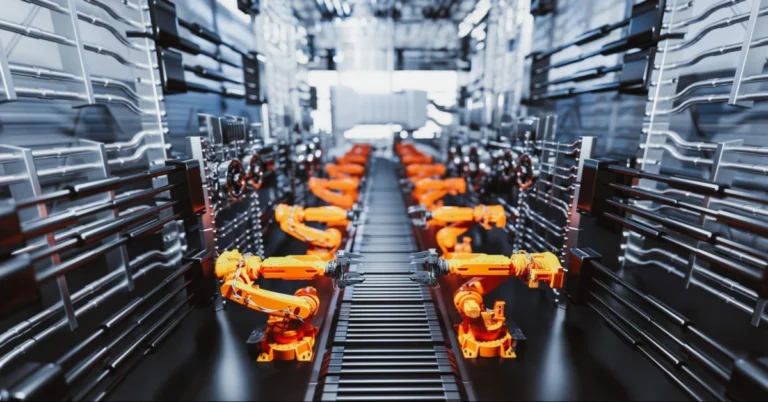This post is also available in:
![]() PL
PL
Material flow is a universal process that exists in every company, regardless of the industry in which the company operates. In order for it to run smoothly, it is necessary to plan and execute many different activities, both outside and inside the company. Such activities are just referred to as logistics processes. In this article we will explain what such a process is, what it looks like and what can be done to improve it effectively.
Logistics process – what is it?
The logistics process is the flow of materials, an orderly chain of operations performed from the moment raw materials are obtained until the finished goods are delivered to the hands of the customer. So it involves making sure that at each stage of production, storage and circulation of goods, all necessary materials arrive in the right quantity at the right place. Seems simple, right? Unfortunately, the planning and effective execution of logistics processes requires the creation and maintenance of a complex system, which consists of smaller subsystems such as:
- supplies,
- production,
- warehousing,
- transportation (internal and external),
- too.
Stages of the logistics process in the company
The exact course of logistics processes will depend on the industry and the specifics of the company. However, the general assumptions always remain the same – the various stages of work must connect with each other in a logical and coherent whole.
Therefore, the most important thing in logistics is the proper sequence of activities – each of them must have its specific place in the chain, so that it is possible to effectively pursue the goals of the enterprise. Deficiencies in one area (such as the flow of materials within the company or the storage of goods) will be felt in every area that follows. This is why precise logistics planning is necessary. Optimal intralogistics is the foundation of any successful enterprise.
The logistics process can consist of the following steps:
- Transportation of goods from manufacturers
- Receiving goods
- Warehousing of products/goods
- Inventory planning and management
- Packaging management
- Packaging
- Customer service
- Scheduling deliveries to customers
- Delivery of goods to customers

How does logistics process planning work?
No matter what logistics system is to be created, one of two methods can be used for optimal logistics planning – to hire a specialized company or to invest in a modern information system.
The first option is certainly more convenient – the company will receive effectively planned logistics processes without involving its own team. However, one must reckon with the high cost of such a service and possible surcharges for modifying the plan as the enterprise grows.
When you buy an IT system, you have full control over the company’s logistics planning process – a well-configured application will allow you to easily identify tasks, determine goals and problems, monitor inventory levels and identify the resources needed to achieve the desired goal. This is often a one-time expense. When planning logistics processes, it is important to remember that each process is equally important to achieving the goal. This means that the preparation of an efficient logistics system requires the fine-tuning of each element – for example, perfectly fine-tuned logistics processes in the warehouse are not enough if the transportation of raw materials limps along or goods arrive late to customers. Every process in the chain of logistics operations should therefore be prepared with due diligence.
Modern technologies in logistics
Recent years have brought with them rapid development of robotics and artificial intelligence. This made it possible to introduce automation on a large scale and developed the global trend of so-called logistics 4.0. Every modern logistics process is based precisely on artificial intelligence – a key element related to the flow of materials and products within the company. A system based on artificial intelligence includes:
- intralogistics,
- smart machines,
- smart operations and processes.
This solution allows the free flow of information and flexible adjustment of operations to the needs of a given company. The introduction of intelligent machines into logistics and production not only optimizes processes that have so far used inefficient technologies, but will also eliminate the problem of personnel shortages. This is because these machines can take over the vast majority of tasks related to transporting, preparing, storing and shipping products.
Modern technological solutions not only affect the speed of tasks, but are also an effective way to increase and standardize the quality of the products offered, and allow a clear reduction in production and in-house transportation costs. For example, a production belt operated by robots does not require lighting and can operate 24/7.

Optimize your logistics with VersaBox solutions
VersaBox is an AMR and AGV manufacturer that offers high-tech AMR robots and easy-to-use software for creating and managing a virtual factory (read about Autonomous Mobile Robots). With them, you can fully automate production, warehouse space and inventory management, material transportation in the production facility and other internal logistics processes. These are practical solutions to optimize your company’s operations and the flow of goods. Our robots are ready to work just a few hours “out of the box,” and all you need is a smartphone for their initial configuration. We also offer full support in the implementation of our devices and software.
Logistics processes – summary
In general, the logistics process is a chain of operations related to the flow of materials in a company from the manufacture of goods to the moment of delivery to the customer. The efficiency of the implementation of these activities depends on the quality of the prepared plans – the proper course of logistics processes is completely dependent on them. Fortunately, it is possible to simplify the planning and implementation of logistic goals by using modern technologies. Even a simple system for handling warehouses can give a lot – if you add robots and artificial intelligence managing them, you will get a coherent and almost self-sufficient logistics system.






